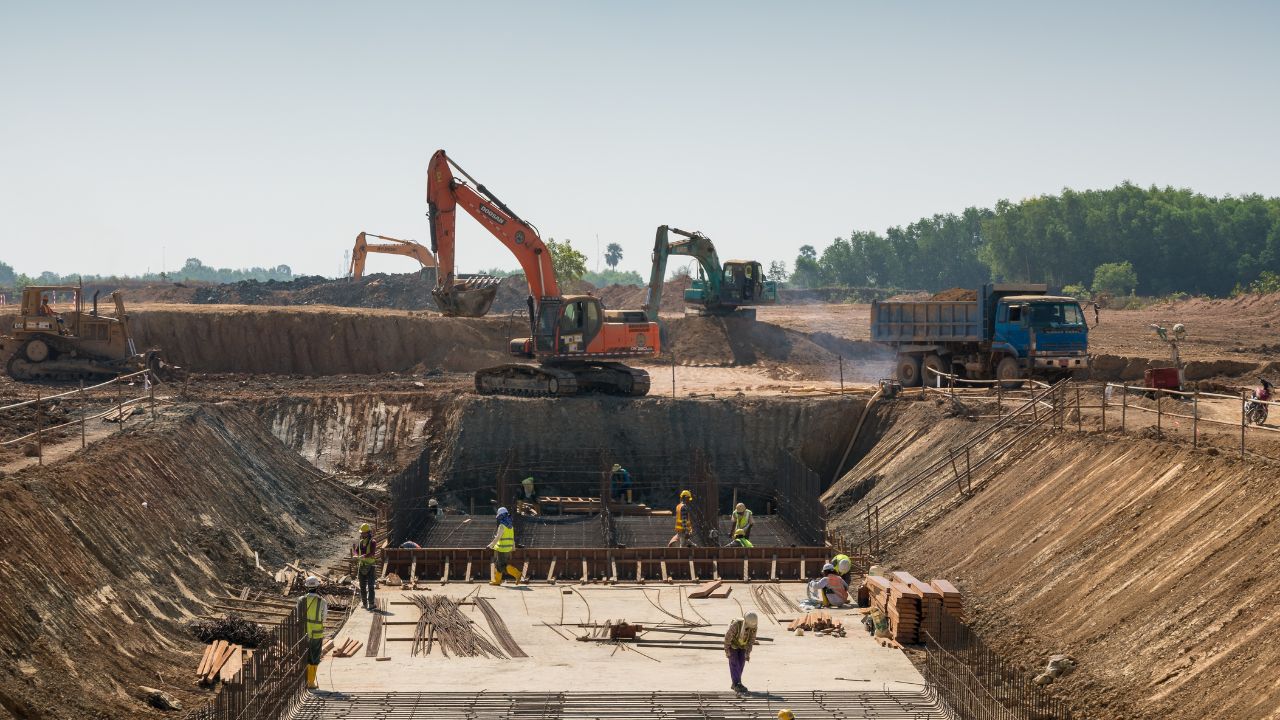- Homepage
- Why Construction Estimates Are Required for Bank Loans?
Why Construction Estimates Are Required for Bank Loans?
Leading provider of bank loan services.
Banks and financial institutions rely heavily on construction estimates when evaluating loan applications because these estimates provide a clear picture of the project’s financial requirements. Without a detailed estimate, lenders cannot accurately assess whether a project is viable or if the requested loan amount is sufficient to complete construction successfully. An estimate ensures that the borrower, lender, and any involved stakeholders are on the same page regarding costs, timelines, and potential risks.
Construction estimates for bank loans are crucial because they allow banks to calculate the total funding needed while accounting for factors like materials, labor, equipment, permits, and contingency funds.

They also help banks determine the risk of lending by highlighting potential cost overruns or unforeseen expenses. Lenders use this information to decide whether to approve the loan, the terms of repayment, and the interest rates applicable to the borrower.
Moreover, an accurate construction estimate demonstrates that the project owner or developer has carefully planned the project and understands the financial implications. Banks see this as a sign of responsibility and reliability, which can significantly increase the chances of loan approval. By providing a detailed estimate, project owners not only improve transparency but also show professionalism and financial preparedness, which is especially important for large-scale or complex construction projects.
At Estimate Florida Consulting, we prepare construction estimates that are precisely aligned with bank requirements, giving our clients a competitive advantage when applying for loans. Every estimate is comprehensive, clear, and backed by professional analysis, ensuring that banks have the information they need to confidently approve funding.
Components of a Construction Estimate
A construction estimate for a bank loan is much more than a simple tally of costs. It is a comprehensive document that outlines every financial aspect of a construction project, ensuring that banks can clearly understand what funds are required and how they will be utilized. At Estimate Florida Consulting, we focus on providing estimates that are accurate, detailed, and tailored for lending purposes. Below are the key components typically included in a bank-ready construction estimate:
- Material Costs: Materials are the foundation of any construction project, and their costs can significantly influence the total budget. This includes everything from concrete, steel, wood, and bricks to flooring, roofing, and finishing materials. Accurate pricing of materials ensures banks know that the funds requested are sufficient to purchase all necessary items without compromising quality.
- Labor Costs: Skilled labor is essential to completing a project on time and to the required standard. Labor costs include wages for contractors, subcontractors, carpenters, electricians, plumbers, and general workers. A well-prepared estimate also considers labor-related expenses such as insurance, benefits, and overtime, providing a realistic view of total human resource requirements.
- Equipment and Machinery: Many construction projects require specialized equipment such as cranes, forklifts, mixers, and scaffolding. Rental or purchase costs of equipment, along with operating and maintenance fees, are included in the estimate to ensure banks understand the full scope of expenditures.
- Permits and Legal Fees: Construction often requires local permits, inspections, and approvals, which come with associated costs. A bank-ready estimate includes these legal expenses, ensuring there are no hidden costs that could delay or halt the project.
- Contingency Funds: Even the most carefully planned projects can encounter unexpected expenses. A professional construction estimate includes a contingency allowance, typically 5% to 10% of the total project cost, to cover unforeseen events such as material price hikes, labor shortages, or weather-related delays.
- Professional Fees: Architectural, engineering, and design services are essential for a smooth construction process. Estimates also account for fees associated with project management, consulting, and design approvals, providing banks with a complete understanding of all costs involved.
By including these components, a construction estimate becomes a powerful tool for banks, showing not only the total financial requirement but also a transparent breakdown that reduces uncertainty. With Estimate Florida Consulting, clients receive estimates that are meticulously prepared, leaving no detail unaccounted for, which significantly improves the chances of smooth loan approval.
Get High-Quality 3D Rendering Services Today!
Transform your space with stunning 3D Rendering that blends style, comfort, and functionality.
We Specialize in Both Residential and Commercial 3D Rendering Projects.
- Luxury Villas
- Apartment Complexes
- Modular Kitchens
- Bathrooms
- Office Buildings
- Shopping Malls
- Hospitals
- Hotels & Resorts
Types of Construction Estimates for Loan Applications
When applying for a bank loan for a construction project, not all estimates are created equal. Banks often require different types of construction estimates depending on the project’s stage, complexity, and scope. Understanding the differences ensures that borrowers provide the right information to secure funding efficiently. At Estimate Florida Consulting, we specialize in preparing estimates that meet the specific requirements of banks, helping clients navigate the loan application process smoothly.
- Preliminary Estimates: Also known as conceptual or rough estimates, these are used early in the project planning phase. Preliminary estimates give banks a general idea of project costs without going into detailed specifications. They are useful for assessing initial feasibility, securing pre-approval for loans, or guiding budget planning. Though less precise, they provide enough information for lenders to evaluate whether the project is worth financing.
- Detailed Estimates: A detailed estimate is a comprehensive, itemized projection of all costs associated with a construction project. This type includes a full breakdown of materials, labor, equipment, permits, contingency funds, and professional fees. Banks prefer detailed estimates for loan approval because they reduce uncertainty and demonstrate careful financial planning. A detailed estimate not only supports loan applications but also helps project owners manage costs and track expenses throughout construction.
- Conceptual or Schematic Estimates: These estimates fall between preliminary and detailed estimates in terms of precision. They are often prepared based on early architectural drawings or schematic plans and are used to guide financial discussions with banks before finalizing detailed construction plans. Conceptual estimates provide a clearer picture than preliminary estimates but are flexible enough to accommodate design changes.
Each type of estimate plays a unique role in the bank loan application process. Preliminary estimates are ideal for initial discussions and feasibility studies, conceptual estimates help refine the loan request with a clearer cost projection, and detailed estimates provide the full financial picture banks require to approve funding. By choosing the right type of estimate at each stage, borrowers can maximize their chances of securing a loan while minimizing delays.
At Estimate Florida Consulting, we ensure every estimate is tailored to the project stage and bank requirements, combining accuracy, transparency, and professionalism to make your construction loan process seamless and stress-free.
How Estimate Florida Consulting Prepares Construction Estimates for Banks?
At Estimate Florida Consulting, we understand that preparing a construction estimate for a bank loan is not just about numbers—it’s about precision, transparency, and reliability. Banks require accurate and professional estimates to evaluate loan applications, and our goal is to provide clients with bank-ready documents that leave no room for doubt. Here’s how we approach the process step by step:
- Initial Project Assessment: Our process begins with a thorough understanding of the client’s construction project. We review architectural drawings, site plans, and project specifications to identify all requirements and potential cost factors. This step ensures that every material, labor, and equipment need is accounted for in the estimate.
- Site Inspection and Evaluation: Whenever possible, our team conducts an on-site evaluation to assess existing conditions, accessibility, and site-specific challenges. This allows us to anticipate potential complications such as soil conditions, site preparation costs, and logistical requirements, which are often overlooked in basic estimates.
- Detailed Cost Analysis: Using industry-standard pricing data and local market rates, we calculate the costs of materials, labor, equipment, permits, and professional fees. Our estimates also include a contingency allowance to cover unexpected expenses, giving banks confidence that the loan amount requested is sufficient.
- Itemized Documentation: Banks prefer clear, itemized estimates that break down costs into understandable categories. We prepare estimates that highlight each component—from foundation work to finishing touches—so lenders can see exactly where funds will be allocated. This transparency improves trust and speeds up loan approval.
- Review and Compliance Check: Every estimate undergoes a thorough review to ensure accuracy, completeness, and compliance with local building codes and bank requirements. By double-checking every detail, we minimize the risk of errors that could delay loan approval or lead to funding issues during construction.
- Professional Presentation: Finally, the estimate is compiled into a professional, bank-ready format that clearly communicates project costs and financial needs. We include explanatory notes, supporting documents, and cost breakdown tables so lenders can easily evaluate the project and make informed decisions.
By following this meticulous process, Estimate Florida Consulting ensures that every construction estimate we prepare is accurate, comprehensive, and bank-friendly. Our clients gain peace of mind knowing that their loan application is supported by a professional estimate that meets financial and regulatory standards, helping them secure funding with confidence and start their projects on the right foot.
Factors That Affect Construction Estimate Accuracy
A construction estimate for a bank loan is only as reliable as the data and assumptions behind it. Several key factors can influence the accuracy of an estimate, making it essential to work with professional estimators who understand the construction industry and local market conditions. At Estimate Florida Consulting, we carefully consider all variables that may impact project costs, ensuring our estimates are both realistic and bank-ready.
- Material Price Fluctuations: The cost of construction materials such as lumber, steel, concrete, and finishing products can change rapidly due to market demand, supply chain disruptions, or seasonal variations. Accurate estimates must use current market rates and account for potential increases over the project timeline.
- Labor Costs and Availability: Skilled labor is vital to completing a construction project on schedule. Labor costs can vary based on regional wage differences, labor shortages, union regulations, and overtime requirements. Estimators must factor in these variables to prevent underestimating total labor expenses.
- Project Complexity: The scope and complexity of the project significantly affect cost accuracy. Projects with custom designs, multi-story buildings, or unique materials require more detailed calculations. Complex projects also have higher risks of unforeseen challenges, which should be reflected in the estimate through contingency allowances.
- Location and Site Conditions: The location of a construction site affects material delivery, labor mobilization, and permit costs. For example, urban areas may have higher labor rates and stricter permit regulations, while rural areas may face additional transportation and accessibility costs. Site conditions, including soil quality, terrain, and existing structures, also influence construction costs.

- Regulatory and Permit Requirements: Local building codes, environmental regulations, and permit fees can significantly impact the total project cost. A professional estimate must include these legal and compliance-related expenses, ensuring that the loan request reflects the full scope of the project.
- Unexpected Events: Even with careful planning, unforeseen circumstances such as weather delays, material shortages, or design changes can affect project costs. A well-prepared construction estimate includes a contingency fund to cover these unpredictable factors, giving banks confidence in the borrower’s financial planning.
By carefully analyzing these factors, Estimate Florida Consulting ensures that every construction estimate is accurate, comprehensive, and reliable for bank loan approval. Our goal is to provide clients with an estimate that not only reflects true project costs but also reduces the risk of loan delays or underfunding, helping projects move forward smoothly and efficiently.
Construction Estimate vs. Budget: Understanding the Difference
Many clients often confuse a construction estimate with a project budget, but the two serve distinct purposes, especially when it comes to securing a bank loan. Understanding the difference is crucial for both lenders and project owners, as each plays a specific role in ensuring the project’s financial success.
A construction estimate is a professional, itemized projection of the costs required to complete a construction project. It includes detailed calculations for materials, labor, equipment, permits, professional fees, and contingency funds. The estimate is prepared by a construction professional, like Estimate Florida Consulting, to provide banks with a clear and transparent picture of financial requirements. It is primarily used for loan approval, financial feasibility assessment, and project planning.
On the other hand, a project budget is the financial plan used by the project owner to manage expenses throughout construction. Budgets are often based on the construction estimate but may include additional considerations such as financing costs, insurance, maintenance, and operational expenses. While an estimate shows how much the project should cost, the budget dictates how money is allocated and spent over time.
Banks rely on construction estimates rather than project budgets because estimates provide an objective, professional assessment of costs, whereas budgets can be subjective and influenced by personal spending decisions. By using a detailed estimate, lenders can ensure the requested loan amount aligns with actual construction needs, reducing the risk of underfunding or financial delays.
At Estimate Florida Consulting, we bridge the gap between estimates and budgets by preparing bank-ready estimates that are precise, transparent, and comprehensive. This ensures project owners have a realistic financial roadmap while giving banks the confidence that their funds will be used responsibly and efficiently.
How a Construction Estimate Helps Secure Bank Loans?
A professional construction estimate plays a critical role in securing a bank loan, acting as a bridge between project planning and financial approval. Lenders require detailed cost projections to evaluate the feasibility and risk of financing a construction project, and a comprehensive estimate provides exactly that. At Estimate Florida Consulting, we ensure our clients have estimates that not only reflect realistic costs but also increase confidence in the loan approval process.
One of the main ways a construction estimate helps is by demonstrating financial preparedness. Banks want to see that project owners have carefully considered every aspect of construction costs, including materials, labor, permits, equipment, and contingency allowances. When a detailed estimate is presented, lenders can verify that the requested loan amount is sufficient to cover the entire project without surprises, reducing the risk of underfunding.
A construction estimate also enhances credibility. A professionally prepared document shows that the borrower has engaged experts to assess project costs, which reassures banks about the borrower’s professionalism and project understanding. This can be particularly important for large-scale or complex projects, where cost miscalculations could lead to delays or incomplete construction.
Moreover, estimates provide a transparent breakdown of all expenditures, making it easier for banks to evaluate the financial plan. Every cost item—from foundation work and structural elements to finishing materials and design fees—is clearly outlined. This transparency helps lenders make informed decisions, speeding up the approval process and reducing back-and-forth clarifications.
Finally, a construction estimate serves as a financial roadmap throughout the project. It ensures that the loaned funds are allocated appropriately and used efficiently. By following a professional estimate, project owners can manage cash flow, avoid unnecessary overspending, and stay on schedule, which further reinforces lender confidence and facilitates a smooth funding process.
At Estimate Florida Consulting, we specialize in preparing construction estimates that are comprehensive, precise, and bank-ready, giving clients a strong advantage when applying for loans. By providing lenders with a detailed, reliable projection, we help turn construction plans into reality with financial security and confidence.
90% More Chances to Win Bids with Our Estimate!
Key Advantages of Hiring Estimate Florida Consulting for Bank-Ready Construction Estimates
Securing a bank loan for a construction project requires more than just numbers on paper—it demands accuracy, professionalism, and clarity. Hiring Estimate Florida Consulting provides clients with a competitive edge by delivering bank-ready construction estimates that are detailed, transparent, and tailored to meet lender expectations. Here are the key advantages of working with our team:
- Accurate and Comprehensive Estimates: Our estimates include every aspect of your construction project, from materials and labor to permits, equipment, professional fees, and contingency funds. This thoroughness ensures banks receive a complete picture of the project’s financial requirements, leaving no room for surprises or ambiguities.
- Time-Saving and Efficient Process: Preparing a construction estimate that meets bank standards can be time-consuming and complex. Our team handles all the calculations, itemizations, and document formatting, saving clients valuable time while ensuring that the estimate is professionally prepared and bank-ready.
- Enhanced Loan Approval Chances: A detailed and transparent estimate increases the likelihood of loan approval. Lenders are more confident when they see a professionally prepared estimate, knowing the requested loan amount is realistic and sufficient for project completion.
- Expert Guidance and Consultation: At Estimate Florida Consulting, we don’t just create estimates—we provide consultation throughout the process. Our experts guide clients on cost-saving measures, accurate projections, and financial planning, helping them make informed decisions and avoid underfunding or overspending.
- Local Market Expertise: We have extensive knowledge of construction costs, labor rates, and material prices in Florida, which is crucial for accurate estimates. Banks rely on estimates that reflect local market conditions, ensuring that the loan amount requested is appropriate for the project location.
- Professional Presentation: Our estimates are presented in a clear, itemized, and visually organized format. This professionalism not only impresses lenders but also makes it easier for clients to track costs, manage the project budget, and maintain control over finances throughout construction.
- Risk Mitigation: By including contingency allowances, realistic timelines, and detailed cost breakdowns, our estimates help clients anticipate potential issues and reduce financial risks. This proactive approach reassures banks that the project is well-planned and manageable.
Working with Estimate Florida Consulting ensures that your construction estimate is not just a document—it is a strategic tool that strengthens your bank loan application, enhances project planning, and gives you peace of mind throughout the construction process.
Tips for Maximizing the Effectiveness of Your Construction Estimate for Banks
A well-prepared construction estimate is essential, but how you present and use it can make a significant difference in securing a bank loan. At Estimate Florida Consulting, we not only prepare professional estimates but also guide clients on how to maximize their effectiveness to ensure smooth loan approval and project execution. Here are key tips:
- Provide Complete Project Information: Banks need a clear understanding of your project to approve a loan. Ensure that your estimate includes detailed plans, architectural drawings, and specifications. The more complete and organized your information, the more confident lenders will feel about your project.
- Use Realistic Costs and Current Market Rates: Estimates should reflect up-to-date material prices, labor costs, and local market conditions. Overestimating may request excessive funds, while underestimating can lead to loan shortfalls and project delays. Our team at Estimate Florida Consulting ensures costs are accurate, current, and justifiable.
- Include Contingency Funds: Construction projects often face unforeseen expenses. Adding a reasonable contingency allowance (typically 5–15% of total costs) in your estimate demonstrates to banks that you are prepared for unexpected challenges and can complete the project without financial strain.
- Present an Itemized and Transparent Estimate: Avoid vague cost summaries. Lenders prefer itemized breakdowns for materials, labor, equipment, permits, and professional fees. Detailed estimates show professionalism and make it easier for banks to assess the financial feasibility of your project.
- Align Your Estimate with Your Loan Request: Ensure the total cost in your estimate matches the amount you are requesting from the bank. Discrepancies can raise concerns and slow down the approval process. A well-aligned estimate demonstrates careful planning and financial responsibility.
- Work with Experienced Estimators: Engaging professional estimators like Estimate Florida Consulting ensures that your estimate is accurate, comprehensive, and tailored to bank requirements. Experienced estimators know how to highlight key cost components, address potential lender concerns, and increase your chances of approval.
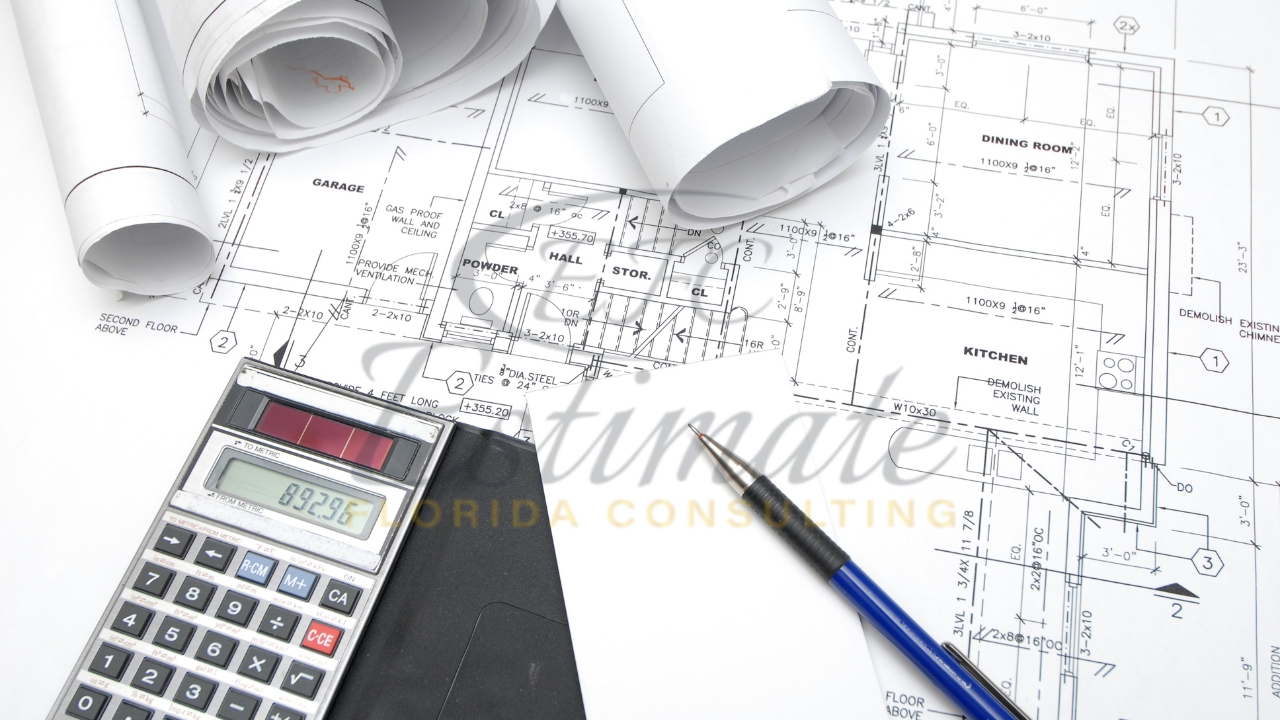
- Maintain Professional Documentation: Present your estimate in a clear, organized, and visually professional format. Supporting documents such as drawings, permits, and cost references strengthen the credibility of your estimate and instill confidence in lenders.
By following these tips, you can maximize the effectiveness of your construction estimate, making your loan application more compelling and increasing the likelihood of approval. At Estimate Florida Consulting, we combine expertise, precision, and local market knowledge to ensure your construction estimate serves as a powerful tool for securing funding and achieving project success.
Common Mistakes to Avoid When Preparing a Construction Estimate for Banks
Even a well-intentioned construction estimate can fall short if common mistakes are made. These errors can delay bank loan approval, create financial risks, and disrupt project planning. At Estimate Florida Consulting, we help clients avoid these pitfalls to ensure their estimates are professional, accurate, and bank-ready.
- Underestimating Project Costs: One of the most frequent mistakes is underestimating expenses. This can happen when material costs, labor rates, or permit fees are not updated or fully accounted for. Underestimating can lead to loan shortfalls, forcing the borrower to seek additional funding mid-project, which may cause delays or increased interest costs.
- Ignoring Contingency Allowances: Every construction project has unforeseen challenges, such as weather delays, supply chain disruptions, or design changes. Failing to include a contingency allowance can make an otherwise solid project financially vulnerable, leaving banks uncertain about your ability to complete the project.
- Vague or Non-Itemized Estimates: Banks expect clear, detailed breakdowns of all costs. Providing only a lump-sum figure for materials, labor, and other expenses raises concerns about accuracy and planning. An itemized estimate demonstrates professionalism and reassures lenders about proper fund allocation.
- Not Updating for Local Market Conditions: Using outdated or generic cost data can mislead banks and affect loan approval chances. Local construction costs, material availability, and labor rates vary widely. Accurate, region-specific estimates are essential for a realistic financial projection.
- Overlooking Permits and Regulatory Costs: Failing to account for permits, inspections, or other regulatory requirements can result in unexpected additional costs. This oversight can create discrepancies between the estimate and actual project costs, potentially causing delays in construction and loan disbursement.
- Not Aligning the Estimate With the Loan Amount: If the total cost in your estimate doesn’t match the requested loan amount, banks may question your financial planning. Proper alignment ensures loan funds cover all aspects of the project and eliminates confusion or back-and-forth during approval.
- Relying on DIY Estimates: While estimating tools and software are helpful, preparing a bank-ready construction estimate requires expert knowledge and professional judgment. DIY estimates often miss critical cost factors, which can reduce credibility and delay funding.
By avoiding these common mistakes, project owners can enhance the accuracy, credibility, and effectiveness of their construction estimates. At Estimate Florida Consulting, we provide professional guidance to ensure every estimate is thorough, precise, and optimized for bank approval, giving clients confidence and peace of mind throughout their construction journey.
Get 5 New Projects in the Next 7 Days With Our System
Frequently Asked Question
Banks require a construction estimate to verify the total cost of a project and assess whether the requested loan amount is sufficient to complete it. A detailed estimate helps lenders understand material, labor, equipment, and permit costs—reducing financial uncertainty and risk before approving funding.
A bank-ready construction estimate should include itemized costs for materials, labor, equipment, permits, professional fees, and contingency funds. It should also outline the project’s timeline, scope of work, and any site-specific factors affecting costs.
A qualified cost estimator or consulting firm like Estimate Florida Consulting should prepare the estimate. Professional estimators ensure that the document is accurate, transparent, and aligned with bank requirements—making the approval process faster and smoother.
A detailed, well-prepared estimate shows banks that the borrower has carefully planned the project, understands all costs, and is financially prepared. This professionalism builds lender confidence, increasing the likelihood of quick loan approval.
An inaccurate or incomplete estimate can cause serious issues—loan rejection, funding shortfalls, or project delays. Banks may also reduce the approved loan amount if cost projections appear unreliable. That’s why professional estimates from experts like Estimate Florida Consulting are crucial.
Comprehensive Trade-Specific Estimates
At Estimate Florida Consulting, we offer detailed cost estimates across all major trades, ensuring no part of your project is overlooked. From the foundation to the finishing touches, our trade-specific estimates provide you with a complete and accurate breakdown of costs for any type of construction project.
Our Simple Process to Get Your Estimate
Upload Plans
Submit your project plans, blueprints, or relevant documents through our online form or via email.
Receive Quotation
We’ll review your project details and send you a quote based on your scope and requirements.
Confirmation
Confirm the details and finalize any adjustments to ensure the estimate meets your project needs.
Get Estimate
Receive your detailed, trade-specific estimate within 1-2 business days, ready for your project execution.



Our Clients & Partners
We pride ourselves on building strong, lasting relationships with our clients and partners across the construction industry.


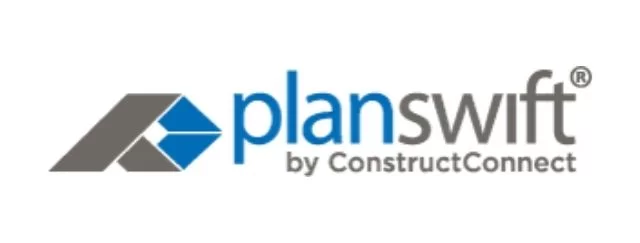


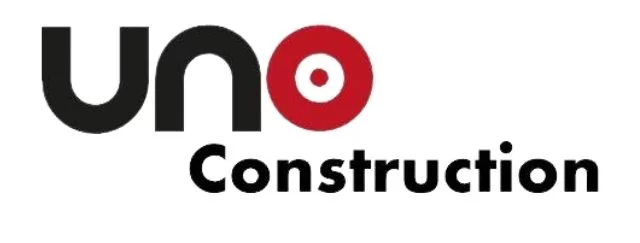
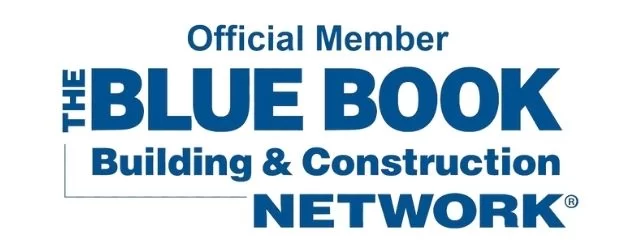
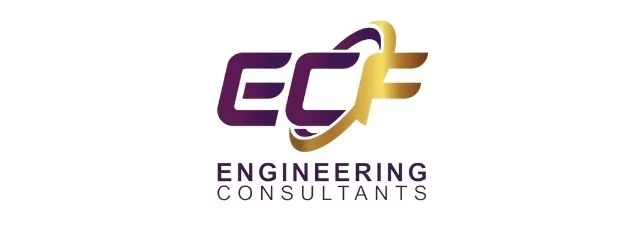



What Our Clients Say?
We take pride in delivering accurate, timely, and reliable estimates that help contractors and builders win more projects. Our clients consistently praise our attention to detail, fast turnaround times, and the positive impact our estimates have on their businesses.
Estimate Florida Consulting has helped us win more bids with their fast and accurate estimates. We trust them for every project!













